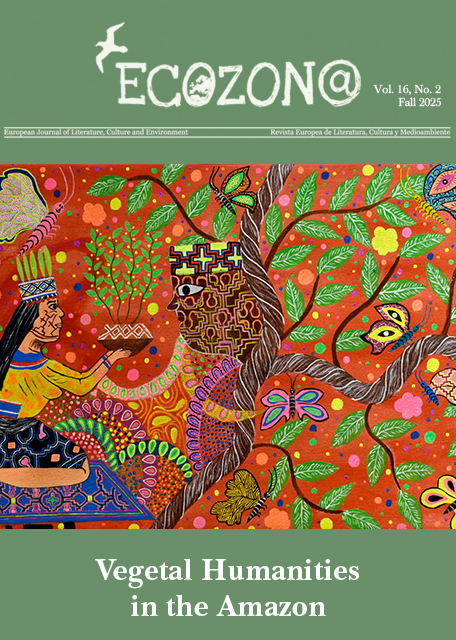Coastal World Literature: Encounters at the Shores of Europe
DOI:
https://doi.org/10.37536/ECOZONA.2024.15.2.5360Parole chiave:
Coastal, World Literature, Migration Fiction, Climate, World-EcologyAbstract
Shorelines are at the forefront when it comes to the effects of climate change. They are equally a preferred leisure destination for global northerners to seek respite and some sort of ecological reconnection. This article argue that the coast offers valuable insight as a literary site of disruptive encounters. At the coast, economic, ecological, and cultural disparity interweave, and can therefore carry manifold connotations, emotions, and prospects dependent of your vantage point. As such, I argue, the coastal site offers fundamentally different temporalities and experiences depending on the vantage point. To exemplify this point, the article examines contemporary registrations of the southernmost European shore in the wake of the so-called migrant crisis that occurred as the Arab Spring revolutions was met by autocratic pushbacks. Furthermore, the article presents the term ‘coastal world literature’ as a methodology of interpreting literature at the dynamic littoral zone between land and sea. Readings of the novel What Strange Paradise (2021) by Egyptian-Canadian author Omar El Akkad, the collection of poems Mare Nostrum (2019) by Libyan-American author Khaled Mattawa , the novel Til stranden (2017; To the Beach) by Danish author Peter Højrup, and the collection of poems titled Bag bakkerne, kysten (2017; Behind the Dunes, the Coast) by Danish author Peter Clement-Woetmann support the assertion that coastal texts are informed by their position within the world-system. In effect, coastal world literature reveals valuable first encounters of disparity, unevenness, and the range of accompanied affective responses. Consequently, what happens at the shore and how we tell it matters immensely.
Downloads
##submission.downloads##
Pubblicato
Fascicolo
Sezione
Licenza
Authors who publish with this journal agree to the following terms:
a) Authors retain copyright and grant the journal right of first publication with the work simultaneously licensed under a Creative Commons Attribution License that allows others to share the work with an acknowledgement of the work's authorship and initial publication in this journal (CC BY-NC for articles and CC BY-NC-ND for creative work, unless author requests otherwise.
b) Authors are able to enter into separate, additional contractual arrangements for the non-exclusive distribution of the journal's published version of the work (e.g., post it to an institutional repository or publish it in a book), with an acknowledgement of its initial publication in this journal.
c) Authors are permitted and encouraged to post their work online (e.g., in institutional repositories or on their website) prior to and during the submission process, as it can lead to productive exchanges, as well as earlier and greater citation of published work (See The Effect of Open Access).










